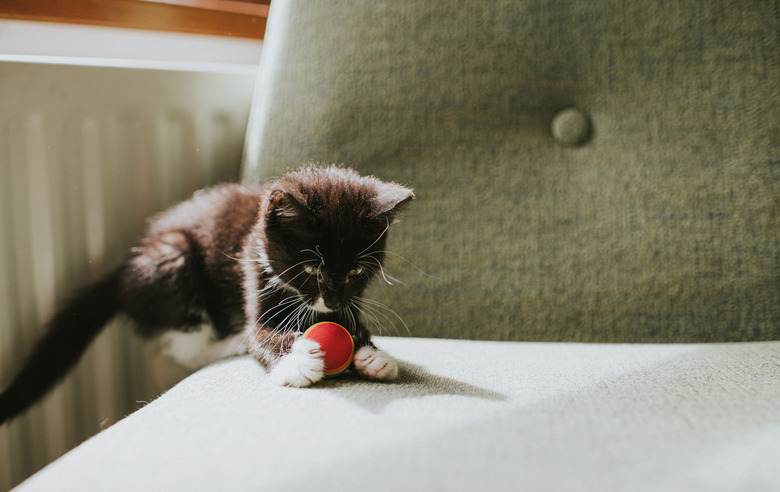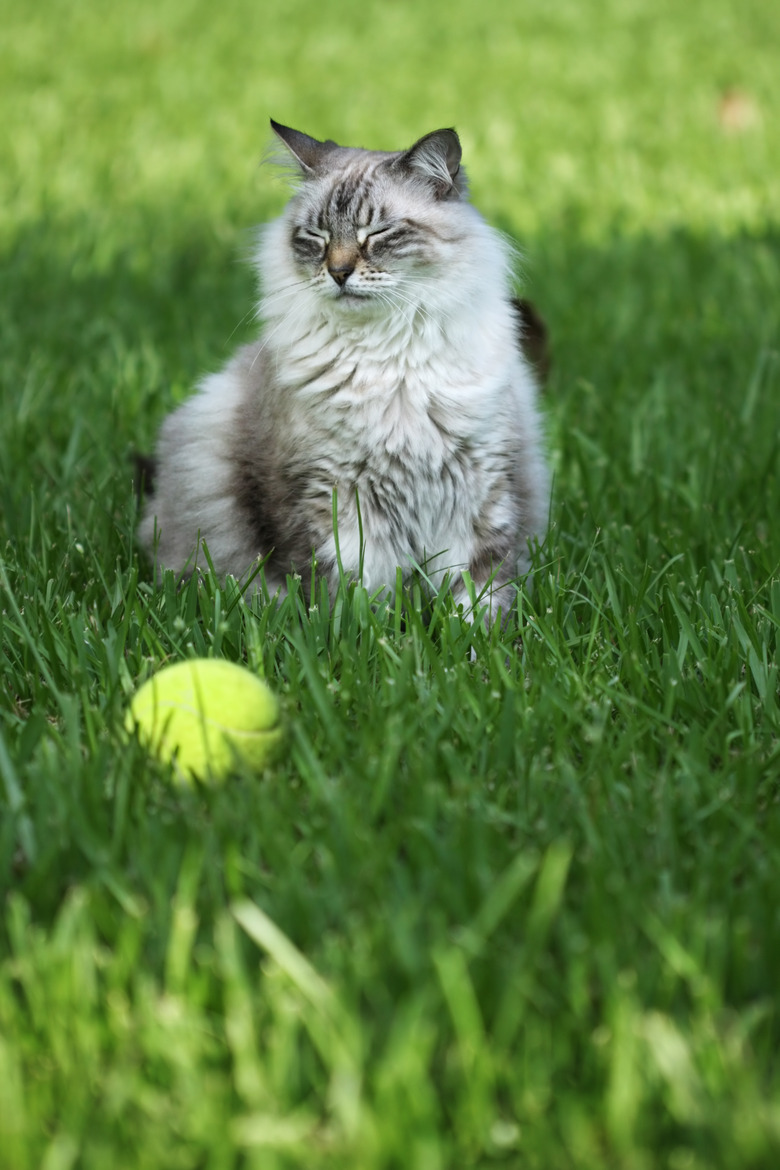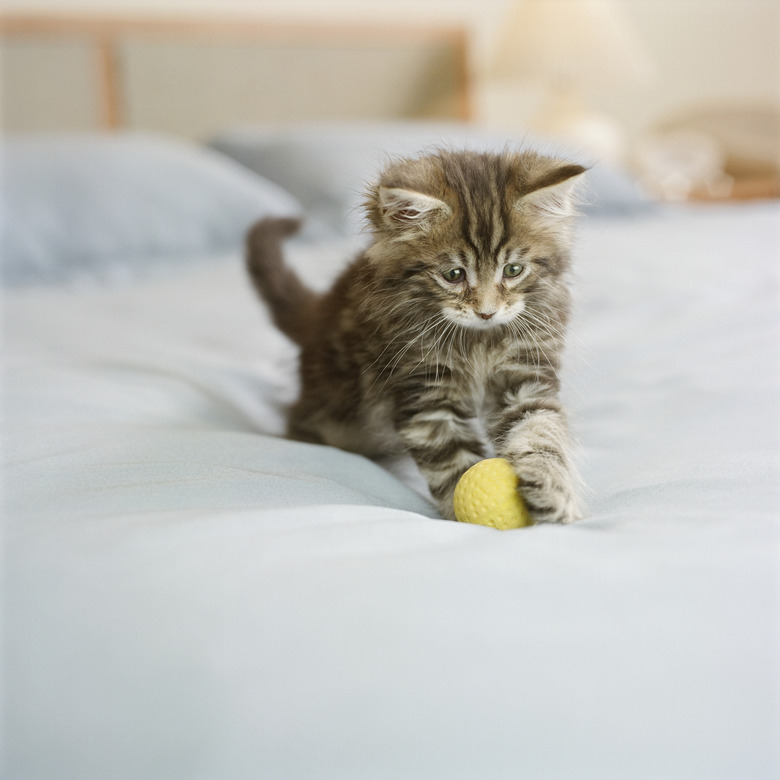Can Cats Play Fetch?
You bought a brand new cat toy and all you want is for your cat to pick it up and bring it back. Or maybe just give you a hug without squirming away and giving you "the look". Are your expectations too high? If you are more of a dog person, it can be hard to tell if a cat wants to play, or just be left alone. Cats are all kinds of cute, snuggly, and even sassy. Yet, if you are a playful person with a cat in your care, you may be wondering if cats can play fetch?
How do cats play?
How do cats play?
There are many ways a cat can engage during playtime. However, according to ASPCA, a lot of active play between cats consists of "mock aggression," chasing, stalking, pouncing, biting and scratching — but all in good fun. If the aggression is just a cat's play, their ears will be forward. The feline won't cause damage, and their body will be leaning forward (not back). The cat will reciprocate in the play, and they will change up their role in the play-action frequently.
According to VCA Animal Hospitals, giving your cat moving objects that can be swatted, stalked, or pounced upon is a great way for pet owners to stimulate play in their cats. Providing ample opportunities for your cat to play can also help alleviate any aggressive or unwanted behavior in your cat.
Can cats play fetch?
Can cats play fetch?
Yes, cats can play fetch. According to NPR, while it may be more of a canine characteristic and survival tool to please people and engage in a game of fetch, cats in their natural state are very much prone to fetching and bringing people things — even more so than dogs. In fact, in the wild, cats bring things back to the den more so than their canine counterparts. So while dogs may have been bred to retrieve, cats have a natural inclination to do this. Therefore, cat owners can certainly train and reward their cats to engage in a game of fetch.
How can you play fetch with your cat?
How can you play fetch with your cat?
If pet owners wish to play fetch with their cat, according to Hill's Pet, they can start by following these principles:
- Respect: don't try to force things your cat isn't into. If your cat is over the fetching, don't try to force them to train anymore. Cat's cannot and will not be pushed.
- Rewards: Training is based on a rewards system. If your cat does something that you want, reward them with a treat. But not too many: it can get unhealthy for your pet.
- Timing: Get to know your cat and their play patterns. Observe what toys they are drawn to and how they play with them. If your cat likes to chase after a certain toy and pick it up, begin to reward them when they do so!
What kinds of cats play fetch?
What kinds of cats play fetch?
There are some cat breeds that may be more inclined to play fetch than others. According to Lafayette Veterinary Hospital, the Maine Coon cat is a large, athletic, and people-oriented breed of feline that likes to follow humans from room to room. They are also highly intelligent, able to learn tricks, and are even prone to playing fetch! What's not to love?
In summary
In summary
There are many different ways that cats play. In fact, it is especially important for cats to engage in play so that they do not exhibit aggressive, destructive, or problematic behaviors. Despite what you may or may not believe, it is possible for a cat to fetch. Cats have an innate instinct to fetch in the wild and can be trained to fetch during their playtime. There are even some breeds like Maine Coons who are highly intelligent, athletic and like to engage in fetch during playtime. If you would like to teach your cat to fetch, never fear — it is certainly in the realm of possibility.


